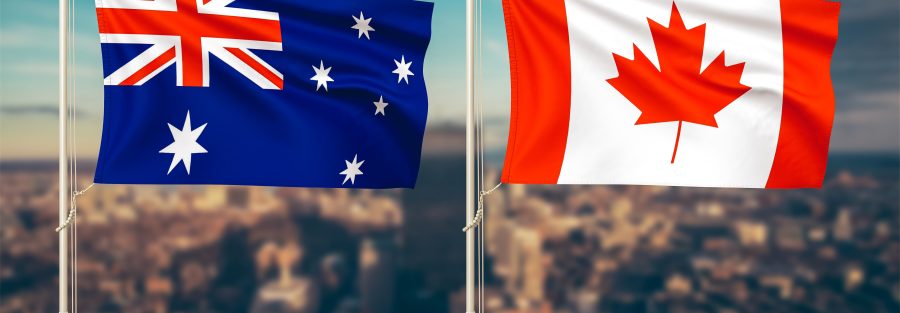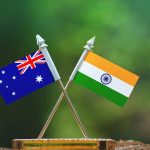From the Outback to the Great White North, migration offers diverse adventures in Australia and Canada.
Migration destinations are important decisions that need to be carefully considered, and selecting between Australia and Canada is one of them. Though each country has distinct immigration laws, living expenses, citizenship requirements, healthcare systems, employment security, and other factors, both provide enticing options for migrants. To assist potential migrants in making wise judgements, we will compare these factors in-depth.
Immigration Process
- Australia: The immigration process for Australia involves applying for visas through the Department of Home Affairs. There are various visa categories, including skilled visas, family visas, and student visas, each with eligibility criteria and an application process.
- Canada: Similarly, Canada offers a range of immigration pathways through Immigration, Refugees and Citizenship Canada (IRCC). These pathways include Express Entry for skilled workers, family sponsorship, provincial nominee programs, and student visas.
Cost of Living:
- Australia: The cost of living in Australia can be relatively high, particularly in major cities like Sydney and Melbourne. Expenses include housing, healthcare, education, transportation, and groceries.
- Canada: The cost of living in Canada varies by region, with major cities like Toronto and Vancouver having higher living costs. However, some regions offer more affordable housing and living expenses.
Ease of Getting Citizenship:
- Australia: Becoming a citizen of Australia typically requires holding permanent residency for at least four years, meeting residency requirements, passing a citizenship test, and demonstrating English language proficiency.
- Canada: To become a Canadian citizen, one must hold permanent residency, meet residency requirements, pass a citizenship test, and demonstrate proficiency in English or French. The residency requirement is typically three out of the last five years.
Permanent Residency (PR) and Eligibility for Family Members:
- Australia: Australian permanent residents enjoy rights such as access to healthcare, education, and social services. Family members can be sponsored for PR through different family visas.
- Canada: Similarly, Canadian permanent residents have access to healthcare and other benefits. Family members can be sponsored for PR through family sponsorship programs.
PR Visa Processing Time:
- Australia: The processing time for PR visas in Australia varies depending on the visa category and individual circumstances. It can range from several months to over a year.
- Canada: PR visa processing times in Canada also vary based on the immigration program and the volume of applications. Express Entry applications typically have faster processing times compared to other streams.
Immigration Points System:
- Australia: Australia operates a points-based immigration system for skilled migration, where applicants are assessed based on factors such as age, education, work experience, language proficiency, and other criteria.
- Canada: Canada’s Express Entry system also uses a points-based system to assess skilled workers based on age, education, work experience, language proficiency, and other factors.
Healthcare Facilities:
- Australia: Australia has a public healthcare system (Medicare) that provides essential medical services to residents. Private healthcare is also available for those who can afford it.
- Canada: Canada has a publicly funded healthcare system that provides essential medical services to residents. Private healthcare services are also available.
Job Security:
- Australia: Australia has a strong economy with diverse industries, providing job opportunities in mining, healthcare, finance, and education sectors. However, job security may vary depending on economic conditions and industry demand.
- Canada: Similarly, Canada has a stable economy with opportunities in technology, healthcare, finance, and natural resources. Job security may vary by region and industry.
Australia and Canada offer attractive opportunities for migrants seeking a better quality of life, economic stability, and diverse cultural experiences. Prospective migrants should carefully consider factors such as immigration processes, cost of living, citizenship pathways, PR eligibility for family members, visa processing times, healthcare facilities, and job security when making their decisions. Ultimately, the choice between Australia and Canada will depend on individual preferences, priorities, and long-term goals for themselves and their families.




